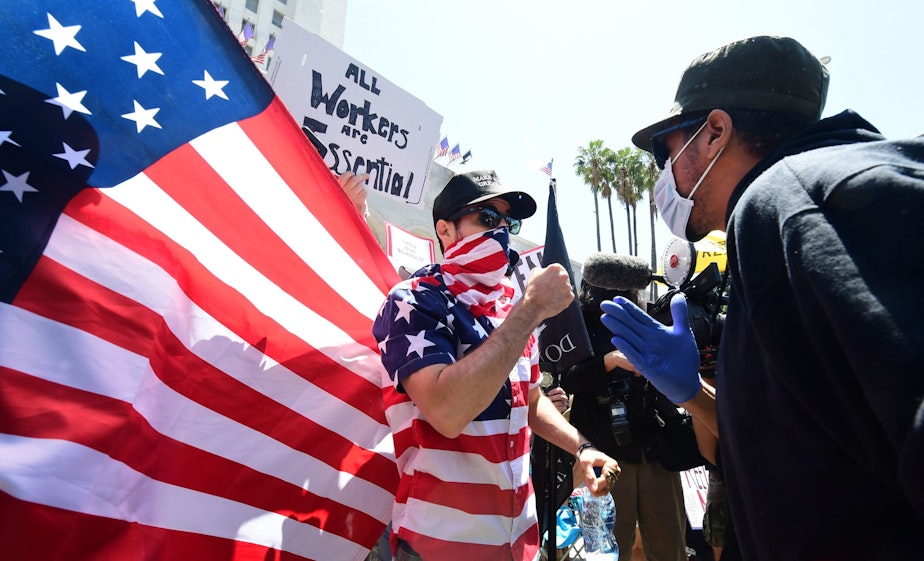Why Scholar Loretta Ross Is 'Calling In' Callout Culture

Loretta Ross is a Black feminist, activist and scholar. One of her biggest concerns now? The pervasiveness of callout culture. We hear why Professor Ross wants to call people in instead of calling people out.
Guests
Loretta Ross, visiting associate professor at Smith College in the program for the study of women and gender. She teaches courses on white supremacy, human rights and callout culture. Author of the forthcoming book “Calling In the Calling Out Culture.” Co-author of “Undivided Rights.” (@LorettaJRoss)
Alicia Garza, civil rights activist. Co-founder of the Black Lives Matter movement. Author of “The Purpose of Power.” (@aliciagarza)
From The Reading List
Sponsored
New York Times: “What if Instead of Calling People Out, We Called Them In?” — “Nyla Conaway, 19, remembers being “called out” for changing her profile picture on Instagram in solidarity for … something.”
WNPR: “Longtime Activist Loretta Ross Speaks Out Against The Call-Out Culture” — “When a peer says something you think is racist, ignorant or wrong, what do you do? Most people agree that staying silent is not a good idea.”
New York Times: “Artists and Writers Warn of an ‘Intolerant Climate.’ Reaction Is Swift.” — “The killing of George Floyd has brought an intense moment of racial reckoning in the United States. As protests spread across the country, they have been accompanied by open letters calling for — and promising — change at white-dominated institutions across the arts and academia.”
Sage Journals: “Drag Them: A brief etymology of so-called ‘cancel culture’” — “The term ‘cancel culture’ has significant implications for defining discourses of digital and social media activism.”
Los Angeles Times: “Up From Hatred” — “At 4 a.m., the stars in the Allegheny sky are so bright and so numerous that it looks as though God is shaking salt on the Earth. Standing outside an all-night gas station, shivering in the cold, Floyd Cochran is too obsessed with his mission to notice. A rail of a man with receding brown hair, a full beard and a craggy profile, Cochran shifts anxiously from foot to foot.”
Sponsored
The Atlantic: “It’s Not Callout Culture. It’s Accountability.” — “The police killing of George Floyd continues to inspire a bracingly physical uprising, with protesters still taking to the streets and monuments to white oppressors still being torn down.”
New York Times: “I’m a Black Feminist. I Think Call-Out Culture Is Toxic.” — “Today’s call-out culture is so seductive, I often have to resist the overwhelming temptation to clap back at people on social media who get on my nerves.”
This article was originally published on WBUR.org. [Copyright 2020 NPR]
